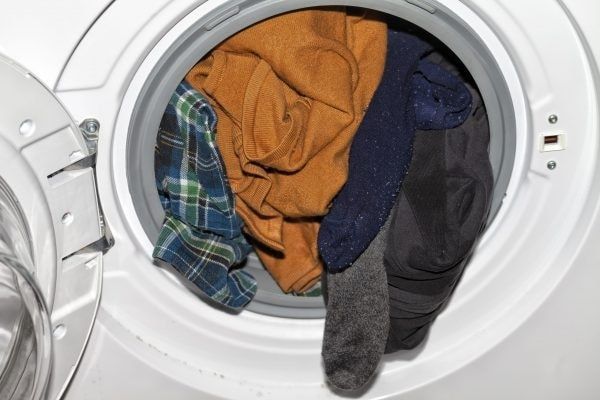5 Reasons Why Your Electrolux Washer Leaves Clothes Wet
If your clothes are still soaking wet after a wash cycle, it can be detrimental to both your washer and dryer. It’s a sign that something is wrong with your washer, and repeatedly drying wet clothes can put a strain on the dryer, causing breakdowns and shortening its lifespan. So what can you do if your Electrolux washer leaves clothes wet? We’ll show you how to troubleshoot the 5 most common causes of this issue.
Electrolux Washer Leaves Clothes Wet? Here’s How to Solve the Problem
Wondering what do I do if my laundry is too wet? Before you call for a repair, sometimes a simple DIY fix can solve the problem. These troubleshooting tips can help determine if a basic adjustment or professional repair is needed when your Electrolux washer leaves clothes wet.
#1. Washer Plugged in With an Extension Cord
Before assessing for a malfunction when your Electrolux washer leaves clothes wet, first make sure it’s powered properly. Using an extension cord to power your washer won’t safely transmit the amount of electricity it requires. This lack of power may not only decrease spin speed but can also cause overheating that results in shutdowns mid-cycle, leaving clothes wet.
Avoid using an extension cord to power your washer and make sure a standard power cord is properly plugged into a functioning outlet.
#2. Washing Machine Is Overloaded
When the washer drum is loaded with too many clothes it can become imbalanced and spin at a slower rate. This reduced spin speed often leaves clothes too wet after spin cycle ends.
To avoid overloading, we recommend only filling the washer drum ¾ of the way full with each load. If clothes are still wet after an overloaded cycle, remove or redistribute some items and run a drain and spin cycle. This can reduce any imbalances and extract more water from clothes before drying.

#3. Need to Adjust Washer Cycle Settings
While top load vs front load washers spin at a slightly slower rate, both have multiple wash settings with different spin speeds. Some settings, like Delicate or Hand Wash, may use a slower spin speed to accommodate the gentler needs of these items.
If your Electrolux washer doesn’t spin clothes dry enough, make sure it’s on the right setting for your particular wash load.
#4. Washer Doesn’t Spin Properly
In some cases a malfunction can result in an Electrolux washer not spinning properly, leaving clothes wet. The following problems can be responsible for spinning issues:
- Damaged drive belt: A drive belt supports the weight of the washer drum as it spins. If it becomes stretched or damaged, it may not enable the drum to spin fast enough. If the belt has visible damage, it requires replacement.
- Faulty door lock switch: This switch on front load washers signals the washer drum to spin and start a wash cycle. If the switch is faulty, it won’t signal the washer and a wash cycle won’t start. Test the switch with a multimeter. If it shows a lack of continuity, it needs replacement.
- Drive motor malfunction: The drive motor powers all washer functions, including the initial spinning that starts a wash cycle. If the above components are functioning properly, a professional service can best assess for a drive motor malfunction.
#5. Washing Not Draining Completely
When clothes are too wet for the dryer, drainage issues may be leaving water behind in the washer drum. The following draining problems may be responsible:
- Drain hose kink or clog: Kinks or clogs can restrict draining, leaving water in the washer drum. Gently straighten any kinks or disconnect the hose to assess for clogs.
- Drain pump malfunction: Check the pump for clogs and remove them as needed. However, if the pump fails multimeter testing, it’s best assessed and replaced by a professional service.
When you need a washer repair service , Reliable Appliance Service can help. Call us if your Electrolux washer leaves clothes wet or for any laundry appliance concerns.

